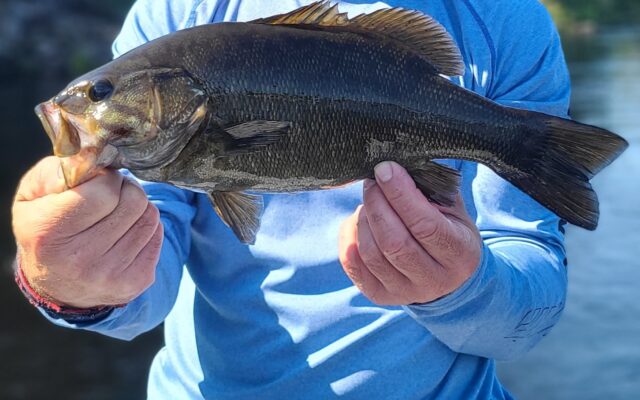
Why banning North Zone bass tournaments is a good thing
By Bob Mallard
As part of a regulation change proposal package that included removing protective regulations on nonnative and highly invasive bass from 14 waters in the native-fish-rich North Zone, Maine Department of Inland Fisheries and Wildlife has also proposed prohibiting bass tournaments in the North Zone. I support this part of the package as I did the regulatory part, and for the same reasons.
I can’t say it frequently or strongly enough: Non native fish are the number one immediate threat to Maine’s wild native salmonids. They have forever changed the ecological face of the southern half of the state, and have imperiled numerous wild native salmonid populations in the northern half of the state, an area that is critically important habitat for wild native brook trout, Arctic charr and Atlantic salmon.
No one wins the nonnative fish game, at least in the long run. While one user group might win the battle, they will eventually lose the war. Trout and salmon anglers lose out to bass, bass anglers lose out to pike, and pike anglers will likely eventually lose out to muskies if they continue to spread.
In the end, everyone loses as our fisheries become overpopulated with stunted fish due to too many mouths to feed, and our aquatic ecosystems are forever and hopelessly degraded. Businesses, property owners, and non-anglers can be negatively impacted as well. As can non-fish native lifeforms.
It’s pretty tough to argue that allowing people to promote and profit from what are mostly illegally introduced bass in the North Zone doesn’t send the wrong message. Allowing tournaments promoting nonnative bass where the general law encourages their harvest, and signs at boat launches discourage moving bass and other fish around is inconsistent and confusing at best.
As is the case with regard to removing protective regulations on bass in the North Zone, DIF&W’s top priority should be the health of the resource, not recreation. And wild native fish should always trump nonnative fish, especially salmonids which have very specific and habitat requirements. What we have here is an attempt by DIF&W to gain consistency in regard to non native and native fish management in the two zones.
According to data obtained from DIF&W, between 2020 and 2022, 82 bass tournament permits were issued for nine waters in the North Zone. During that same period of time, 759 permits were issued for 86 waters in the South Zone. This means that the current DIF&W proposal would affect just over 10% of the recent bass tournament permits and waters.
As for the geographic impact, while the change would technically apply to the entire North Zone, all but one North Zone water where bass tournaments were held between 2020 and 2022 were within 12 or less miles of the border with the South Zone. Only Wyman Lake, which hosted a single event in 2020, was more than a dozen miles from the border. This means that the actual impact involves just a small geographic area.
As part of the recent proposal to remove protective regulations on bass from 14 waters in the North Zone, four waters that straddle the border between the North Zone and South Zone would be moved into the South Zone for regulatory purposes, which would allow for the issuance of bass tournament permits going forward.
To their credit, the bass lobby in Maine is large, organized, influential, and effective. This will put pressure on DIF&W to back off of what is a sound and fair proposal. But as I said before, and as should be the case, while DIF&W has to listen to us anglers, they do not have to do what we say. And like removing protective regulations from bass in the North Zone, I believe this is one of those times.
Neither I nor the group I represent, Native Fish Coalition, had anything to do with either of the two proposals impacting bass in the North Zone. NFC did however write in support of both proposals after the fact, as did others. Maine’s wild native salmonids are of national significance. They are an important part of Maine’s heritage, and part of what makes the state unique.
I applaud DIF&W for taking a pro-native fish position that will not be popular with some factions of the sporting community. While we can never stop the proliferation of nonnative fish, we can discourage and hopefully lessen it. Preventing folks from benefiting by illegal acts is one way to do that. Hopefully, people will see it that way and respond accordingly.